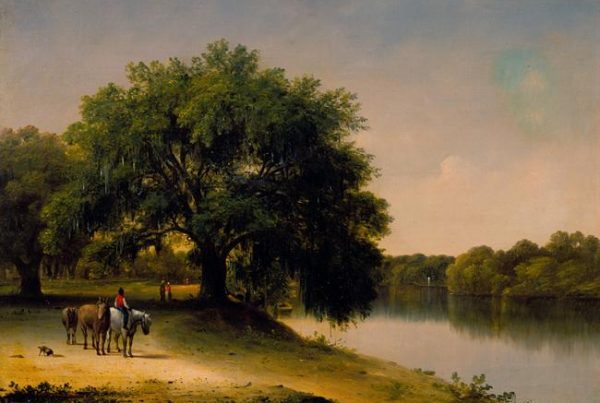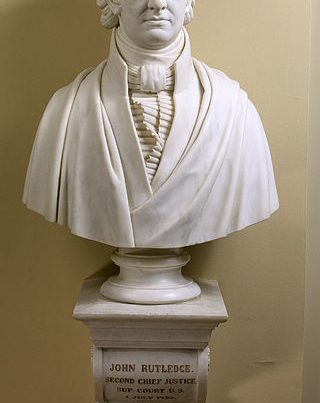
The Legend of the Speech
Abraham Lincoln’s dedicatory speech of the memorial cemetery at Gettysburg “Gettysburg Address” has, like its author, achieved a kind of apotheosis. The soldiers, about whom it was written and to whom the memorial itself was dedicated, are virtually forgotten. Observers today consider the Gettysburg Address the American political creed, a “prose poem” of the triumph of freedom and equality. Delivered in 1863 during the height of the Civil War, Lincoln’s dedicatory speech is only three paragraphs long. Even today, schoolchildren often learn it by heart. The content of this most rousing and triumphant of eulogies is bracingly simple. Lincoln begins by reminding his audience of the Founding Fathers’ conviction of the undeniable truth that all men are created equal. This undeniable truth, he claims, provides the Union its strength and assures it of victory in the present “struggle”. From there he pivots, consoling the people of the Union and thanking them for their loyalty, steadfastness, and great sacrifice in the cause of preserving the Constitution against the rebellious South. Despite the latter’s pretensions to “secession”, he offers an olive branch to the thoroughly defeated confederates, promising reunification and forgiveness for those prepared to free their slaves. Meditating in fulsome detail upon the Union soldiers who had died, he praises both their deeds in battle and their self-conscious dedication to the goal of emancipating and enfranchising the African-Americans in bondage. Closing with a flourish, he prophesies the inevitable victory of constitutional government and democracy in America, portending hope for harmonic relations between the races in a “new birth of freedom”. This is the Gettysburg Address that court historians usually cherish as the creed of our national political theology.
Except that Lincoln does none of these things. Certainly not in his Gettysburg Address. Yet how can this be? Lincoln is universally regarded as a mystery, an object of reverence, an oracle even, whose words demand the minutest of attention. Perhaps then we should take a second look, to verify that he did say and mean what our legend of it tells us. For Lincoln was nothing if not extremely careful in his words, especially when–as we will discover–he was talking out of both sides of his mouth.
The Speech
Let us set the scene. It is autumn in southern Pennsylvania. Though still denuded and upturned by shrapnel or shovel, the fields surrounding the small hamlet of Gettysburg no longer give off the hideous musk of decaying bodies that had permeated the hot summer air. For two months the myriads of torn and sightless corpses had lain exposed to all weathers, pawed by beasts and kinfolk. A forced and frantic labor had been necessary to stash them away in makeshift graves; otherwise public remembrance would have been unendurable. The battlefield now cleared, the dedication proceeds. The guests are huddled close before the platform to hear the eulogists speak, made warm by their mutual proximity to history and its solemn recitation. Others wander the fields, strangely detached from the goings-on at the podium.
The first speaker’s theme is predictable, and reassuring. Edward Everett, a former President of Harvard College, harangues the audience in grand Periclean style while President Lincoln, recently arrived by train and fighting sickness, waits rigidly in his chair. This speech, boilerplate-long, is conventional but natural: On this spot Northern virtue and valor had driven off the traitorous enemy’s determined salient, sparing the heartland an invasion hardly anyone had imagined a few years earlier. Admittedly, grief and watchfulness are still called for–grief, but also relief; watchfulness, but also self-assurance and even congratulation. Et cetera. Everett’s eulogy is long, fulsome, unquestionably complete. Yet the grief of the bereaved is sharp, and in some cases bitter. Not all in attendance are of Everett’s mind as to who should bear the blame for the carnage beneath their feet. Yet undoubtedly most take comfort in the image of the fearsome Rebs defeated and melting away into the haunted woods and mountains of Virginia. The land shall now rest in an honorable peace.
As the oration winds down, not a few of the listeners begin to ponder how Lincoln, no stranger to longwinded oratory himself, will follow up this performance. A flourish, a close, and strong applause ensues for the Harvard man, followed by whispers, coughs, and then silence. Lincoln verticulates from his chair and proceeds to the middle of the dais. From this height he can stare out past the crowd to the fields, hills, and horizon beyond. He knows who lies out there.
In stark contrast to his predecessor’s demeanor, Lincoln’s mood is not triumphant. Nor is it solemn exactly, but rather depressed, sickly, distracted. In his first statement he weirdly declines to offer a eulogy, though he admits he is obliged to give one. Instead of affirming the “self-evident” truth of equality found in proem of the Declaration of Independence, he presents this notion as a rather doubtful gambit, as likely to be refuted as confirmed by the war’s outcome. The “new nation, born in liberty” he portrays as a frail child, born untimely, perhaps. Now left to the uncertain wardship of its human patrons, the death of this nation, Lincoln states, would mean not only the present end of democracy in America, but forever, in all corners of the world. Such an incredible assertion, bordering on the paranoid and even defeatist, passes almost unnoticeably as he moves to even greater rhetorical excess. Who threatens this child? Lincoln gives hardly a clue, not even alluding either to the Constitution or the Confederacy that supposedly threatens it. At this point the president’s grimness verges on parody or insanity, as if he is already mourning–not his country or people, but a misty vision of it, weirdly untethered to the flesh-and-blood dead and living around him. He is not talking to his audience, but to himself.
Apparently he sensed this when preparing his words, for Lincoln himself explicitly admits that his highly abbreviated speech will be a failure, destined to be ignored and forgotten. Indeed, he even claims that praising the soldiers whom he sent to their deaths is superfluous. Fortunately he is excused: their actions will be remembered forever, despite any action or inaction of his or his listeners. (They and he might as well not be there, one guesses.) Nor does he praise, let alone criticize, himself. All agency and responsibility, his or theirs, for the good or bad consequences of the war are banished, exicised from any considerations of prudence, glory, or regret. Lincoln’s stance is as disembodied as a message in a bottle, written by some other oracular leader from a nameless, doomed land lost long ago. Had his address actually been such a message, the finder of it would have been hard pressed to determine which side had won the battle. Did it not matter? This commander-in-chief ignores all details of the victory and of the specific deeds their soldiers performed to win it, choosing instead misty and vague allusions to sacrifice (and thus leaving any ugly details of that sacrifice beneath recital). Indeed, he does not even distinguish the Union troops from the enemy combatants who also claim to be fighting for the survival of a “new nation, conceived in liberty”, an intolerable ambiguity if “our fathers” were necessarily their fathers too. But Lincoln, his eyes on the heavenly city, stares determinedly past the graves at his feet.
Lincoln inhumanly neither consoles nor praises the mothers and fathers of the soldiers for their efforts or sacrifice. (Do they exist for him?) This, despite the fact that at his wife’s request he has used his office to shelter their son Robert from military service, and will continue to do so until the last few–and least dangerous–months of the war. When the president does allude to the suffering mourners, it is only to demand further sacrifice from them, reminding them in pretty, brutal terms of the sunk cost of their investment in beloved dead. (How many more thousands and hundreds of thousands will the butcher require? “To the last man” he seems to say.) But of his own role in ordering these soldiers to their deaths, Lincoln says nothing at all. Ever addressing some hypothetical jury, he restricts his pronouns carefully to the ubiquitous “we” and “us”, browbeating and implicating his audience while disavowing his own bloody and violent agency. He will not be convicted before any judge, divine or human–not if he can help it. Almost as soon as he started, Lincoln sits down, spent and exhausted. (But what coin of his own did he spend?) Some confusion must have ensued in the minds of the spectators, uncertainly smiling and clapping: Was that all? This is what the president had traveled hundreds of miles to say?
The Meaning
To call Lincoln’s encomium at Gettysburg esoteric and strained is to quite understate the case. Even the most positive and enthusiastic tributes of the Republican court newspapers could not hide a certain ambivalence towards the address and its author, the one man most concretely responsible for the war’s provocation and continuance. Lincoln, perhaps the most canny lawyer for the robber barons of his time, denied both liability and defeasibility for the war: it could not be put off or negotiated, he protested, nor was it his fault. Lincoln claimed to be all effect and no cause; he merely noted the axioms and completed the certain Euclidean constructions that necessitated megadeath. At the very least these were self-interested claims, and he made them obsessively. The demise of fraternal peace in the war was indeed a crime, and Lincoln, the only plausible suspect, humbly vowed to find the real killers. And he found the guilty not just in the Confederacy, but everywhere. Either as candidate or office-holder, Lincoln named nearly every sub-political actor and supernatural force a cause, condition, or agent of the war: freedmen and free traders; slave catchers and abolitionists; southern planters and northern business magnates; Copperheads; pacifists; terrorists; the Author of the universe and the authoress of Uncle Tom’s Cabin. By this logic, there were no innocent bystanders–except himself, somehow. Such tortious sophistry bespoke an inner torture of the soul, a real house divided if ever there was one. Lincoln, so fond of a biblical metaphor, failed to notice in himself the symbolism of a man who could not stop washing his hands.
Were it not for his (bare) allusion to Union control of the Gettysburg battlefield, one might just as easily infer from Lincoln’s gnomic and almost desperate rhetoric that the Northeners should prepare themselves for a long rearguard resistance to the hated antidemocratic power to the south– this in late 1863, after Grant had taken Vicksburg and Lee was on the run. Such rhetoric bordered on the grotesque if not the delusional. Lincoln’s psychological projection is often not seen today for what it was, but its presence in the Address is unmistakable. Everyone on both sides of the war knew that no one in the North had endured anything on the scale of the continental embargo inflicted by Lincoln’s semi-mercenary army and navy upon the southern population. No Northern women or children faced the years-long combination of incipient starvation, collateral damage, mass impoverishment, pestilent death, or exposure to bloody raids and reprisals that their Southern counterparts faced, all while the men were away at war. It had been lost on few that Lincoln’s vilely cynical attempt earlier that year to provoke a Nat Turner- or Haiti-like slave rebellion could only have been meant to engineer mass murder of Southern women and children at the moment of their greatest vulnerability. No matter what its outcome, such a rebellion would have left any future reconciliation between blacks and whites utterly impossible, practically ensuring bad blood and future violence on a scale dwarfing anything displayed by the KKK and the Union Leagues in the war’s aftermath. This from the man who declared himself to possess “charity for all and malice towards none”.






